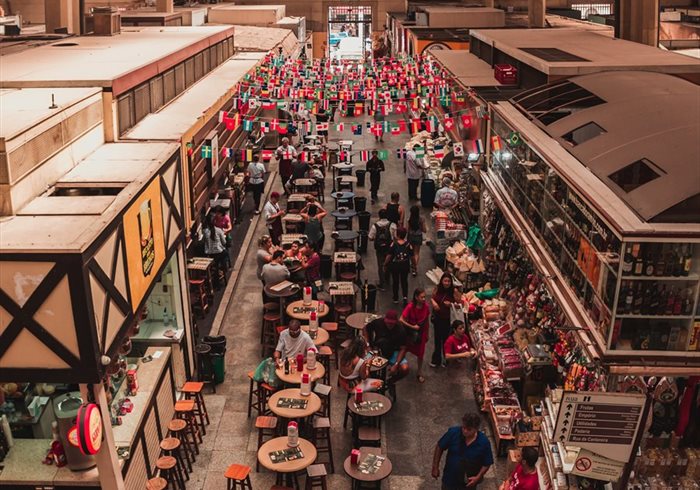#ATMDubai: Rise of gastro-tourism and its role in destination marketing

Tours and activities designed to take holiday-makers on a culinary journey are now commonplace, and accommodation establishments are investing more in providing visitors with appealing dining experiences.
Shaping perceptions around culinary culture
Commenting on the evolution of gastro-tourism during a panel at the Arabian Travel Market in Dubai this week, Michael Ellis, founder and CEO of Passionomy.tv, said that more and more people are putting food at the heart of their travel plans and building their trips around it. Drawcards can be anything from the type of cuisine, to particular restaurants, chefs, dishes Michelin stars or unique dining experiences.
Ellis added that countries such as Singapore, Tokyo, Spain and Paris have done a sterling job at communicating the distinct qualities of their food offering, promoting aspects like seasonal, locally-produced ingredients; cooking techniques and heritage.
In the Middle East, Dubai has emerged over the last few decades as a world-class dining destination, drawing influence from local flavours as well as global cuisines thanks to the diverse mix of nationalities that call the city home. Its dining scene is set to receive a further boost with the looming launch this year of a Michelin Guide for the city.
Speaking on the the strength of Dubai as a foodie destination, Suhaila Ghubash, events director for Dubai Festivals and Retail Establishment, said that travellers tend to prioritise local cuisine on arrival to a country but then soon seek out dishes that are more familiar to them, and Dubai caters to this fusion. She noted that food is a key pillar in the city’s tourism strategy, with a particular focus on the inclusion of SMEs and local businesses.
Not too far away, Saudi Arabia is working to grow its reputation as a culinary destination, with 14,000 new restaurants launched in 2021 and a premier dining destination called Bujairi Terrace set open later this year at Diriyah Gate.
Talal Nabil Kensara, chief of strategic management at the Diriyah Gate Development Authority, refers to it as a cultural heritage project that aims to speak to the country’s identity in a contemporary way.
He spoke of the importance of providing a fun and engaging experience to attract the new generation of diners, and employing a creative approach towards infusing traditional ingredients into modern dishes so that food retains the authentic Saudi spirit while being innovative and contemporary.
Supporting tourism, elevating status
According to Kensara, restaurants offer a social activity that supports tourism and helps showcase a destination.
For a hotel, a well-curated food & beverage (F&B) offering can help elevate the property’s status as an accommodation supplier of choice.
Lynne Bellinger, director of F&B design and development at Marriot International EAME, noted the importance of keeping up with market trends. Her advice was to not design the dining experience too prematurely, as trends evolve and the time frame between a hotel’s conception and the actual launch can be lengthy.
Marriot International has benefitted from introducing big restaurant brands to its establishments, and Bellinger noted this as a “big trend”. Just as prominent brands like Chanel or Louis Vuitton can elevate the status of a retail destination, big name F&B brands and celebrated chefs can drive feet into hotels.
Big brand appeal
Bellinger pointed out that bringing big names on board gets half the hotel marketing done as they’re already recognised by consumers. For this reason, branded concepts tend to bring in more revenue than independent, unknown restaurant brands.
Kensara echoed Bellinger’s sentiments adding that recognisable brands help to sustain the tourism industry as they come with a proven formula that ultimately results in less risk.
However, small local businesses add authenticity and heart to a country’s dining culture, and creative eateries, pop-ups and markets, when executed with flair, can become tourist attractions in their own right. Ghubash said that travellers naturally seek out unique local concepts that they’re not able to access elsewhere in the world, and this is an area in which SMEs and entrepreneurs can thrive.















